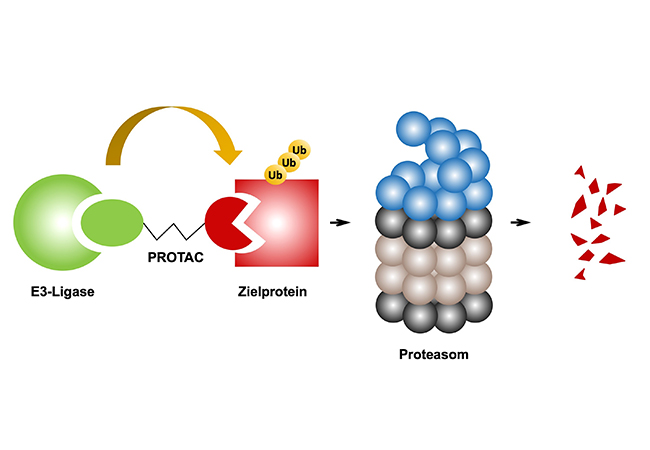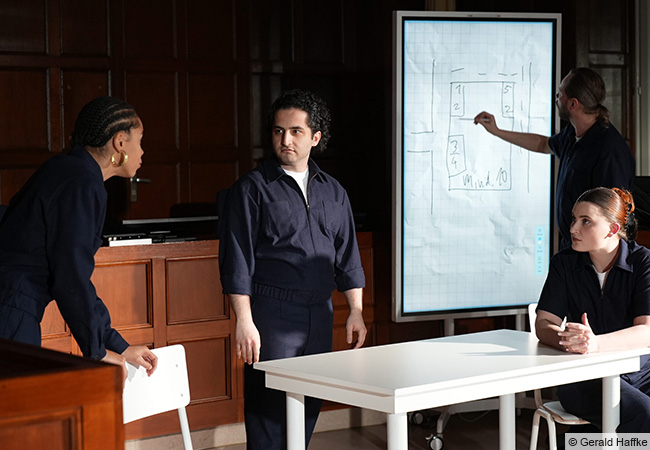PROXIDRUGS, the regional network led by Goethe University, aims at developing active molecules for selective intervention, opening new therapeutic avenues. Within the “Clusters4Future” ideas competition, the Federal Ministry of Education and Research has now selected the project for funding in the concept phase – as one of 16 finalists out of 137 proposals submitted.

“The body has developed an ingenious mechanism for disposing of superfluous or harmful proteins. We wish to seize this to break down disease-relevant proteins,” says PROXIDRUGS coordinator Professor Ivan Đikić from the Institute of Biochemistry II at Goethe University, explaining the project’s rationale. Developing better therapies for diseases such as cancer, heart or inflammatory disease is the goal of the alliance of biochemists, chemists, clinicians and pharmacists from Goethe University, the Fraunhofer Institute for Molecular Biology and Applied Ecology (IME) and TU Darmstadt.
The Federal Ministry of Education and Research will support the project with funds of up to € 250,000 during the six-month concept phase starting in May. If the alliance then qualifies for the implementation phase, up to € 5 million will be available per year for PROXIDRUGS. With this funding scheme, the Ministry wants to turn scientific hotspots into powerful regional innovation networks. “Goethe University at the heart of the Rhine-Main region, a top location unique in Germany, bundles academic and industrial expertise for the development of innovative therapeutic concepts,” says Professor Simone Fulda, the University’s Vice-President, praising the consortium’s approach, which is based on reprogramming of the cell’s own systems.
Proteins destined for degradation are usually marked in an enzymatic reaction with the small protein ubiquitin. The cell’s “shredder”, the proteasome, recognizes this signal and breaks the respective protein down into its individual components, which are then recycled. At the focus of PROXIDRUGS is a novel class of drugs acting through a proximity-based mechanism: The corresponding molecules exhibit two functional units – one for the selective binding of the respective target protein and a second one to dock onto the required enzyme. In this way, any unwanted protein that has a suitable binding pocket can in principle be marked with ubiquitin and flagged for degradation.
First molecules based on this principle, called PROTACs (Proteolysis Targeting Chimeric Molecules), already exist. A major advantage is their high specificity and catalytic mode of action – meaning that each molecule can carry out multiple reactions, such that only a small amount of active drug is needed. First trials with PROTACs in prostate and breast cancer are currently underway. The researchers in the PROXIDRUGS alliance now want to create new molecules in this very promising class of drugs, e.g. for diseases that until now cannot be treated with small molecules.
One of the aims of the PROXIDRUGS alliance of Goethe University, TU Darmstadt and the Fraunhofer IME is to bundle existing expertise in basic and clinical research, in pharmaceutical and biotech companies in the Rhine-Main region within one network. “Translation of our results to the clinic will be challenging,” says Đikić. “However, thanks to close collaboration with regional companies, which have already shown great interest in the project, and the involvement of University Hospital Frankfurt, I’m confident that we’ll master this challenge.”







